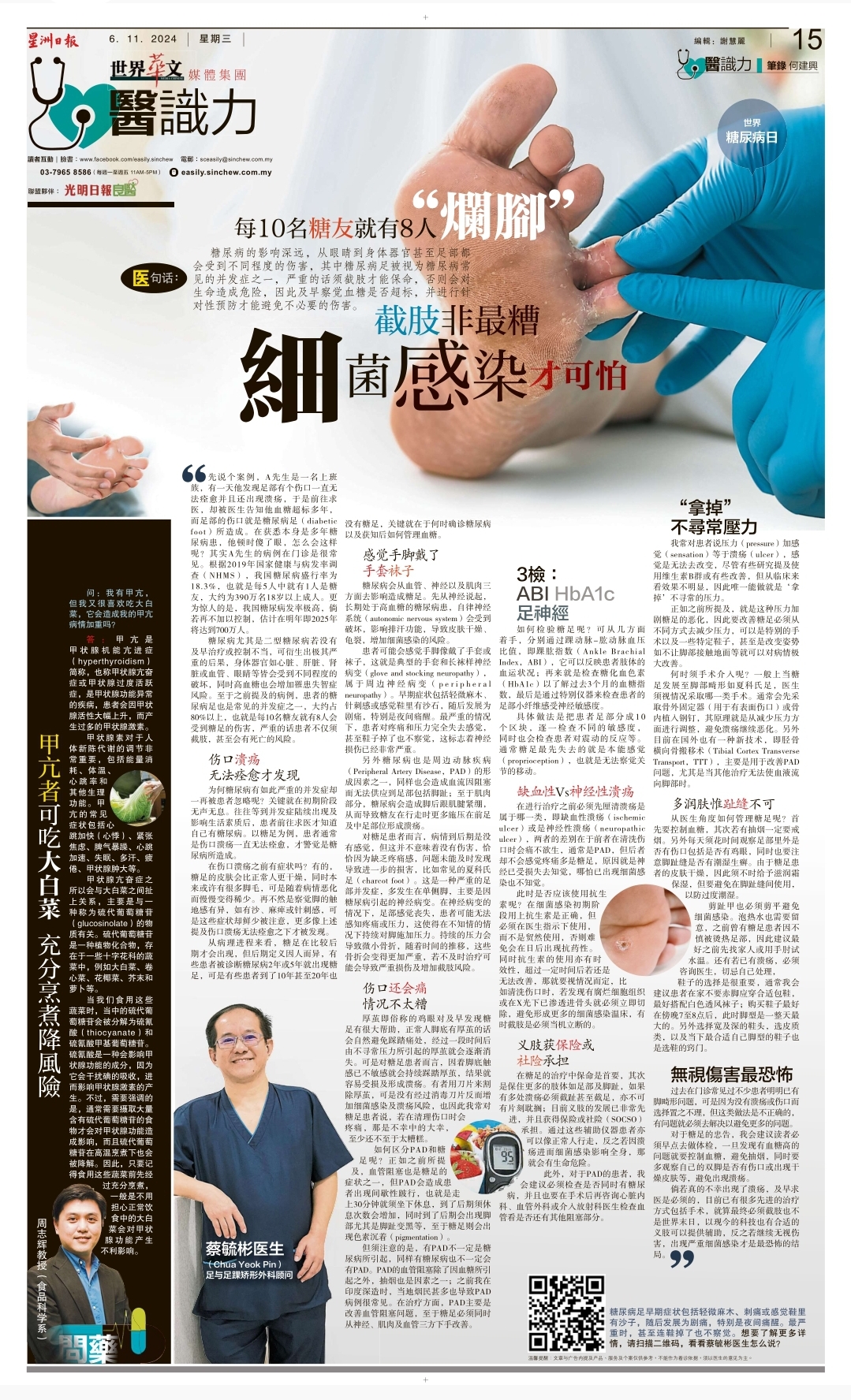8 Out Of Every 10 People With Diabetes Have "Rotten Feet": Amputation Not The Worst, Bacterial Infections Are The Worst
06 November 2024

The effects of diabetes are far-reaching, from the eyes to the body organs, and even the feet will be subject to varying degrees of damage, in which the diabetic foot is regarded as one of the most common complications of diabetes.
 Consultant Foot & Ankle Orthopaedics, Dr Chua Yeok Pin stated that diabetes, especially type 2 diabetes, if not treated early or not properly controlled, it can lead to extremely serious consequences.
Consultant Foot & Ankle Orthopaedics, Dr Chua Yeok Pin stated that diabetes, especially type 2 diabetes, if not treated early or not properly controlled, it can lead to extremely serious consequences.
"Body organs such as the heart, liver, kidneys, blood vessels, eyes, etc. will be damaged to varying degrees, and high blood glucose will also increase the risk of developing dementia.
"Diabetic foot is also one of the common complications, accounting for more than 80% of the cases, which means 8 out of every 10 people with diabetes will suffer from diabetic foot, and in serious cases, patients will not only have to amputate their limbs, but also have the risk of death," he says.
He added, for people with dibetic foot, their foot is senseless in the later stages, but this does not mean there is no damage because the problem for not detected in time will lead to further damage, such as the charcot foot.
"This is a serious foot complication that occurs mostly on one side of the foot and is mainly due to neuropathy caused by diabetes.
"In the case of neuropathy, sensation is lost in the foot and the patient may not be able to perceive pain or pressure, which allows constant pressure to be applied to the foot without its knowledge. Continued pressure can lead to micro-fractures, which can become more severe over time and if left untreated can lead to serious injury and increased risk of amputation," he says.
In the treatment of dibetic foot, he says, life preservation is the first priority, followed by the preservation of more limbs such as feet and toes, and if there are multiple ulcers that must be amputated toes or even feet, then there should not be a moment to delay.
"The development of prosthetics has been very advanced, and is covered by insurance or Social Security Organisation (Socso).
"With these aids, the patient can walk like a normal person, but if the ulcers lead to bacterial infections affecting the whole body, then it can be life-threatening," he added.
As for the advice for patient with diabetic foot, Dr Chua suggest that they must go for medical checkups earlier, and control blood sugar once they are found to have high blood sugar, at the same time, avoid smoking, and observe their feet more to see if there are any wounds or appearances of dry skin, etc. to avoid developing ulcers.
Source: Sin Chew Daily





